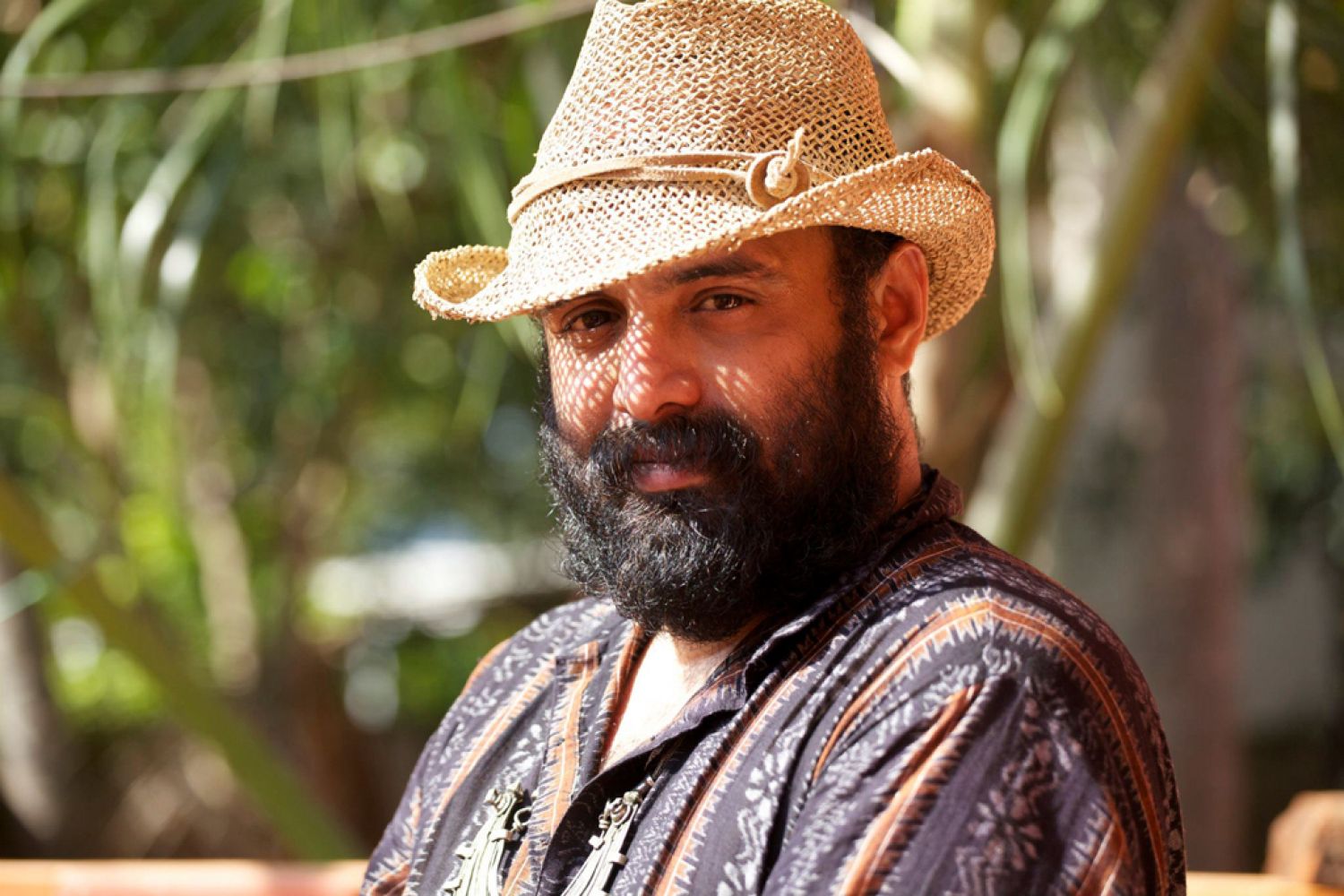
Director Rajesh Touchriver is talking in Malayalam into his mobile phone. Stout and compact like a boxer, he has a shaven head with a blood-red scar near the left temple, caused by an accident. His beard is full and his eyes are small, like apertures in a camera, with a playful gleam and radiating a childlike innocence. His ears are small, cheeks fleshy like a ripe Banganapalli mango.Touchriver is sitting at a table, shirtsleeves folded above the elbow. On the table’s dark-green marble surface





